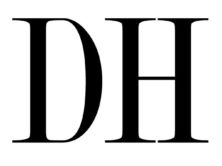
Peter G. Peterson (right) is the main financial backer of the Fiscal Times. (Credit Peter G. Peterson foundation)
iMediaEthics recently wrote about ethical issues in the partnership between the Washington Post and upstart financial news service, the Fiscal Times.
Printing content from outside news providers risks a newspaper’s credibility, especially if the story emerges with fairness or balance problems. Specifically, the Washington Post was criticized after publishing a Fiscal Times story many argued was unbalanced.
Recently, the New York Times looked at the broader spectrum of these new content-provider relationships, and concluded that the whole landscape is ethically fraught.
Richard Pérez-Peña writes, “Several media analysts and executives said… the risk is real. Inevitably, they said, there will be groups or individuals with particular slants offering to fill the reporting gaps for traditional news organizations — and the more of them there are, the harder it will be to perceive their agendas.”
While newspapers have always employed freelancers, a generation ago no newspapers would regularly publish outside stories other than those from wire services like the Associated Press or Reuters, Pérez-Peña writes. But “with established newsrooms shrinking, a raft of smaller news outlets have cropped up in the last few years, selling or simply giving news reports to the traditional media — groups like ProPublica, Global Post, Politico and Kaiser Health News.”
There’s just more pressure now, for news organizations to farm out even more content they no longer have the staff to produce. Unfortunately, these outside producers are neither as easy to mold and control as freelancers, nor do they have the long-developed balance and scope of the newspapers themselves.
The Fiscal Times story left the Washington Post in a hard spot, stuck either looking like it contracted out a story to a potentially biased source without proper editing and vetting, or that it was itself biased. But Pérez-Peña writes, the Post’s problem wasn’t even that bad.
Worse lapses have taken place, he explains. “In the best-known case, in 2004, the Bush administration produced a video that looked like a news report in support of its proposed changes to Medicare, and dozens of stations around the country included it in their newscasts.”
Pérez-Peña quotes Kelly McBride, ethics group leader at the Poynter Institute, who says “There are going to be some newsrooms, I can guarantee you, they’re going to get garbage and they’re going to print it.”
According to Peña, this is more a risk for news producers working under the influence of single dominant supporter like the Fiscal Times’ main funder, Peter G. Peterson. “Similar questions have been raised, though not as pointedly, about the Allbritton family, owners of Politico, and Herbert and Marion Sandler, who gave the bulk of the money supporting ProPublica,” he writes.
Perhaps most troubling, ethically, is the sense that the near future might see what Pérez-Peña calls “a rush by wealthy individuals or groups to create their own newsrooms… to reach consumers either directly or by placing their work with publishers and broadcasters.”
This may not be anything all that new. After all, many news outlets are caught over and over again essentially reprinting press releases, which run, arguably, the same risk of bias. Its discomfiting though, that the current climate of shrinking news staff might see this practice dramatically increase.
Read Pérez-Peña’s article in full here.






